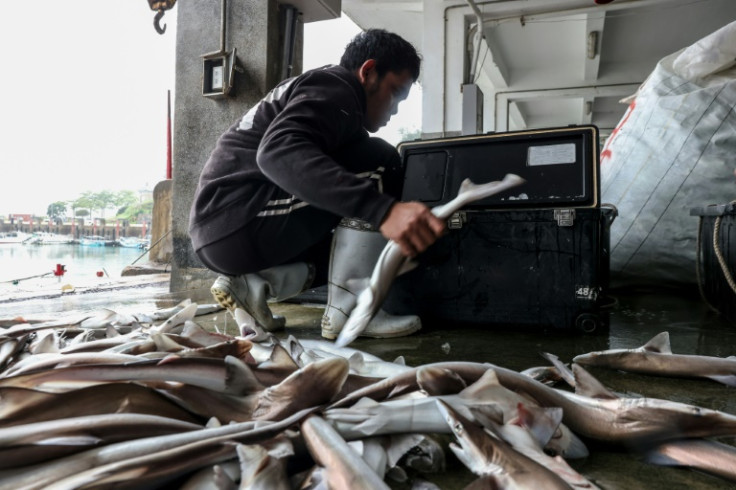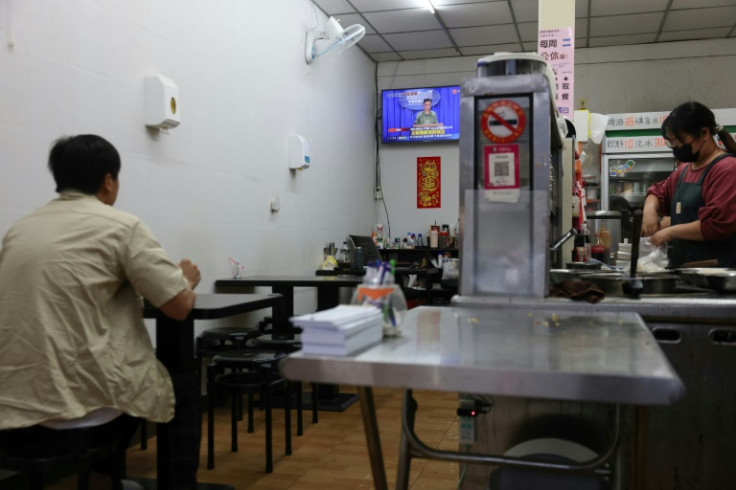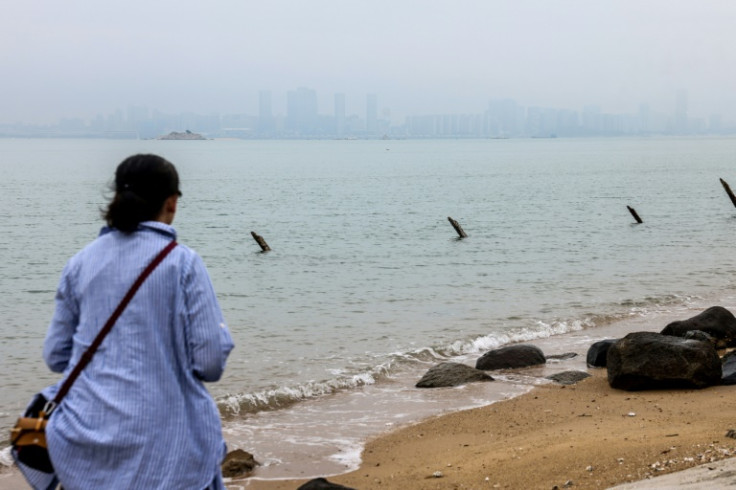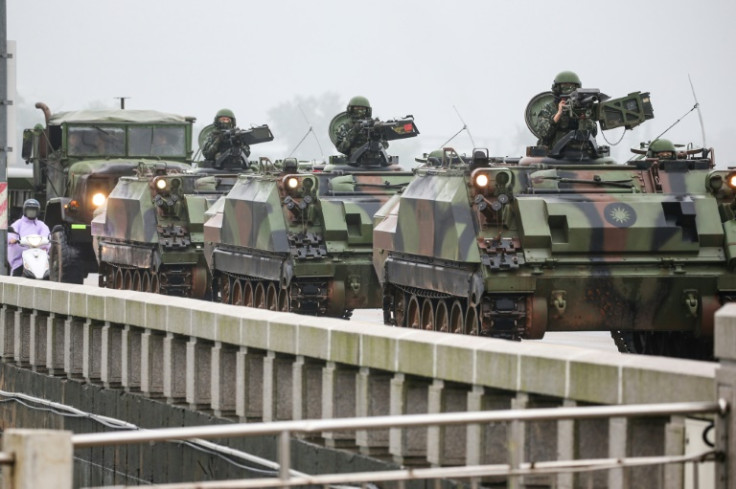Taiwan's Kinmen Island Lives Life 'As Usual' Despite Chinese Drills

After a night at sea, fishers unloaded their haul on a port in Kinmen on Friday, saying there was "no real impact" from war games that Chinese forces were running around self-ruled Taiwan.
Sleepy, historic Kinmen was among a series of Taipei-administered islands where Beijing was carrying out military exercises.
Fisherman Chen Chien-chou, 32, who had worked through the night under rainy conditions at sea, said things were "the same as usual" around Kinmen.
"There is no real impact (from the drills), it makes no difference to the people," he said, as port workers stuffed dozens of small sharks into boxes destined for markets.
"They are targeting the main island, not outlying islands, which already have close interactions with them," Chen said.
The two-day drills, codenamed Joint Sword-2024A, were launched days after Taiwan swore in President Lai Ching-te, who Beijing describes as a "dangerous separatist".
But China's escalating campaign of intimidation has meant that residents in Kinmen are "not taking things to heart", said Wu Wei-kuo, 40, who runs a guesthouse out of a historic mansion.
"I can't put my life on hold for something I have no control over," he said.
Taipei-administered Kinmen is only five kilometres (three miles) from the Chinese mainland, compared to 200 kilometres from Taiwan's main island.
It is also a military training base -- armoured trucks were spotted rolling through its streets Friday as Taiwanese soldiers conducted routine exercises.
A front line island after the nationalists fled China to Taiwan in 1949, Kinmen today has remnants of its battlefield history, like fortifications on its beaches and bunkers on the streets.
More than 70 years later, China's communist leaders still vow to seize democratic Taiwan, which Beijing views as part of its territory.
The island may sit at China's door, but guesthouse operator Wu said "the name of my country is Taiwan". He, like many others on the self-ruled island, identifies as Taiwanese, distinct from Chinese.
"If, unfortunately, a war breaks out... if there is a need for me to go to the battlefield, I will go," he told AFP.
Since 2016, when Taiwan's Democratic Progressive Party -- which champions the island's sovereignty -- came into power, China has severed all high-level communications.
It sends warplanes, naval vessels and drones around Taiwan, and in recent months -- particularly for the outlying islands -- there have been frequent appearances of Chinese coast guard ships.
But "they wouldn't do anything to our fishing boats," said another fisherman surnamed Chen, who declined to provide his full name.
"They just sailed by us and took a look... We are not worried."
Lin Rong-bin, a school janitor residing in Kinmen's smaller islet of Lieyu, reckoned he knew exactly the phrase in Lai's inaugural speech on Monday that drew China's wrath.
Lai delivered an oft-repeated party line, saying that the Republic of China -- Taiwan's official name -- and the People's Republic of China "are not subordinate to each other".
"That's like saying there are two countries," the 44-year-old janitor said.
Beijing denounced the speech as a "confession of independence".
Still, Lin said life in Kinmen remains "business as usual".
"If something really serious is happening, the ferries (between Kinmin and Xiamen) will be shut down."




© Copyright AFP 2024. All rights reserved.











